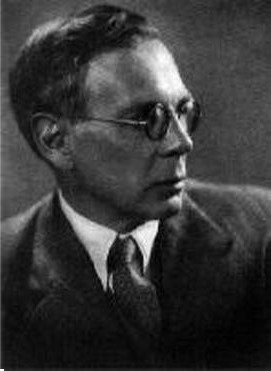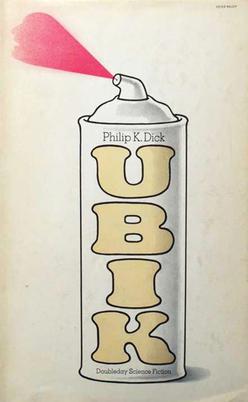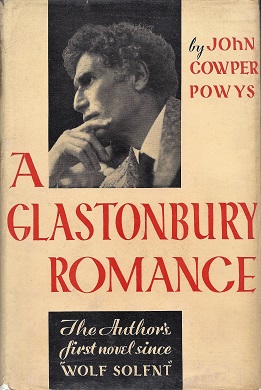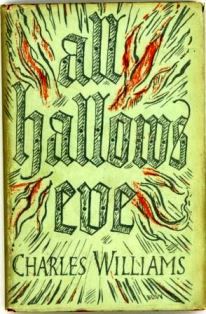
The Place of the Lion is a work of supernatural fiction written by Charles Williams. The book was first published in 1931 by Victor Gollancz.

The Place of the Lion is a work of supernatural fiction written by Charles Williams. The book was first published in 1931 by Victor Gollancz.
Platonic archetypes begin to manifest themselves outside a small Hertfordshire town, wreaking havoc and drawing to the surface the spiritual strengths and flaws of individual characters. Their focus is the home of Mr Berringer, the leader of a group interested in magical symbolism who falls into a coma after contact with the first archetype unloosed, the lion of the title. Other powers follow this one and cut off the town from the rest of the world that they will inevitably absorb and reshape. Among those overcome and destroyed by the raw powers they encounter are two members of the group, Mr Foster and Miss Wilmot, whose motivation is ultimately selfish. A chance visitor to the group, the academic author Damaris Tighe, narrowly escapes the same fate but is saved at the last moment by her cousin and fiancé, Anthony Durrant. She then sets out to locate Anthony's friend, Quentin Sabot, who had been with Anthony when the lion first appeared and has now fled into the countryside, overcome with terror.
Meanwhile, with the help of another group member, Mr Richardson, who also has the inner strength to withstand the angelical archetypes, Anthony is enabled to understand the process that has been unleashed by Berringer. Together they plan to counter it and reverse the threat. Its next phase has already started and some of the town's buildings begin to collapse as Berringer's house is swallowed in a column of unquenchable flame. Armed with the secret names of the archetypes from a grimoire, Anthony summons them back to their point of focus while Richardson neutralizes the fire by walking into it.
T. S. Eliot described Williams' novels in this genre as "supernatural thrillers". [1] J. R. R. Tolkien and C. S. Lewis had found the book inspirational and it is often cited as a major work that altered their own writings and helped them both become novelists. [2] Anthony Boucher and J. Francis McComas, in their survey of fantasy fiction, called The Place of the Lion "one of the most daringly conceived and stunningly visualized of all Williams’ novels". [3] Similarly, for Glen Cavaliero in his study of Williams' work, "plot, themes and literary treatment coalesce in an artistic unity that makes The Place of the Lion the most technically flawless of the novels, and thus a more satifyingly integrated fable than its predecessors". [4] Over the years the novel has been the subject of a number of other academic studies.

Charles Walter Stansby Williams was an English poet, novelist, playwright, theologian and literary critic. Most of his life was spent in London, where he was born, but in 1939 he moved to Oxford with the university press for which he worked and was buried there following his early death.
Fantasy comedy or comic fantasy is a subgenre of fantasy that is primarily humorous in intent and tone. Typically set in imaginary worlds, fantasy comedy often involves puns on, and parodies of, other works of fantasy.

Ubik is a 1969 science fiction novel by American writer Philip K. Dick. The story is set in a future 1992 where psychic powers are utilized in corporate espionage, while cryonic technology allows recently deceased people to be maintained in a lengthy state of hibernation. It follows Joe Chip, a technician at a psychic agency who begins to experience strange alterations in reality that can be temporarily reversed by a mysterious store-bought substance called Ubik. This work expands upon characters and concepts previously introduced in the vignette "What the Dead Men Say".

The Inklings were an informal literary discussion group associated with J. R. R. Tolkien and C. S. Lewis at the University of Oxford for nearly two decades between the early 1930s and late 1949. The Inklings were literary enthusiasts who praised the value of narrative in fiction and encouraged the writing of fantasy. The best-known, apart from Tolkien and Lewis, were Charles Williams, and Owen Barfield.

The English novel is an important part of English literature. This article mainly concerns novels, written in English, by novelists who were born or have spent a significant part of their lives in England, Scotland, Wales, or Northern Ireland. However, given the nature of the subject, this guideline has been applied with common sense, and reference is made to novels in other languages or novelists who are not primarily British, where appropriate.

That Hideous Strength: A Modern Fairy-Tale for Grown-Ups is a 1945 novel by C. S. Lewis, the final book in Lewis's theological science fiction Space Trilogy. The events of this novel follow those of Out of the Silent Planet and Perelandra and once again feature the philologist Elwin Ransom. Yet unlike the principal events of those two novels, the story takes place on Earth rather than elsewhere in the Solar System. The story involves an ostensibly scientific institute, the N.I.C.E., which is a front for sinister supernatural forces.

John Cowper Powys was an English novelist, philosopher, lecturer, critic and poet born in Shirley, Derbyshire, where his father was vicar of the parish church in 1871–1879. Powys appeared with a volume of verse in 1896 and a first novel in 1915, but gained success only with his novel Wolf Solent in 1929. He has been seen as a successor to Thomas Hardy, and Wolf Solent, A Glastonbury Romance (1932), Weymouth Sands (1934), and Maiden Castle (1936) have been called his Wessex novels. As with Hardy, landscape is important to his works. So is elemental philosophy in his characters' lives. In 1934 he published an autobiography. His itinerant lectures were a success in England and in 1905–1930 in the United States, where he wrote many of his novels and had several first published. He moved to Dorset, England, in 1934 with a US partner, Phyllis Playter. In 1935 they moved to Corwen, Merionethshire, Wales, where he set two novels, and in 1955 to Blaenau Ffestiniog, where he died in 1963.
Urban fantasy is a subgenre of fantasy, placing supernatural elements in an approximation of a contemporary urban setting. The combination provides the writer with a platform for classic fantasy tropes, quixotic plot-elements, and unusual characters—without demanding the creation of an entire imaginary world.

The Mythopoeic Awards for literature and literary studies are given annually for outstanding works in the fields of myth, fantasy, and the scholarly study of these areas. Established by the Mythopoeic Society in 1971, the Mythopoeic Fantasy Award is given for "fiction in the spirit of the Inklings", and the Scholarship Award for non-fiction work. The award is a statuette of a seated lion, with a plaque on the base. It has drawn resemblance to, and is often called, the "Aslan".

The Dead Zone, also known as Stephen King's The Dead Zone is a science-fiction drama television series starring Anthony Michael Hall as Johnny Smith, who discovers he has developed psychic abilities after a coma. The show, credited as "based on characters" from Stephen King's 1979 novel of the same name, first aired in 2002, and was produced by Lionsgate Television and Paramount Network Television for the USA Network.
Supernatural fiction or supernaturalist fiction is a genre of speculative fiction that exploits or is centered on supernatural themes, often contradicting naturalist assumptions of the real world.
Vampire hunter or vampire slayer is a fictional occupation in folklore and fiction which specializes in finding vampires, and sometimes other supernatural creatures. A vampire hunter is usually described as having extensive knowledge of vampires and other monstrous or undead creatures, including their powers and weaknesses, and uses this knowledge to effectively combat them.

A Glastonbury Romance was written by John Cowper Powys (1873–1963) in rural upstate New York and first published by Simon and Schuster in New York City in March 1932. An English edition published by John Lane followed in 1933. It has "nearly half-a-million words" and was described as "probably the longest undivided novel in English".

Descent Into Hell is a 1937 novel written by Charles Williams.
Roger Norman is a British novelist living in Turkey. He is the author of four widely acclaimed novels for adults and children, mainly centering on the countryside of Dorset in southwest England.
Glen Tilburn Cavaliero was an English poet and critic.

Maiden Castle by John Cowper Powys was first published in 1936 and is the last of Powys so-called Wessex novels, following Wolf Solent (1929), A Glastonbury Romance (1932), Weymouth Sands (1934). Powys was an admirer of Thomas Hardy, and these novels are set in Somerset and Dorset, part of Hardy's mythical Wessex. American scholar Richard Maxwell describes these four novels "as remarkably successful with the reading public of his time". Maiden Castle is set in Dorchester, Dorset Thomas Hardy's Casterbridge, and which Powys intended to be a "rival" to Hardy's Mayor of Casterbridge. Glen Cavaliero describes Dorchester as "vividly present throughout the book as a symbol of the continuity of civilization. The title alludes to the Iron Age, hill fort Maiden Castle that stands near to Dorchester.

All Hallows' Eve is the last of the seven novels of the supernatural written by Charles Williams. Published by Faber and Faber in 1945, it went through three impressions that year and another in 1947. In 1948 it was published in the US by Pellegrini & Cudahy with an introduction by T. S. Eliot. There were two later translations into Italian and Spanish.

Many Dimensions was the second of the novels of the supernatural by Charles Williams. The original publisher was Victor Gollancz Ltd in 1931. Following Williams' death it was republished by Faber & Faber in 1947 in the UK and in 1949 by Pellegrini & Cudahy in the US. In 1952 it was issued in the Penguin Books green-covered Mystery & Crime series.
Phyllis Paul was an English novelist.